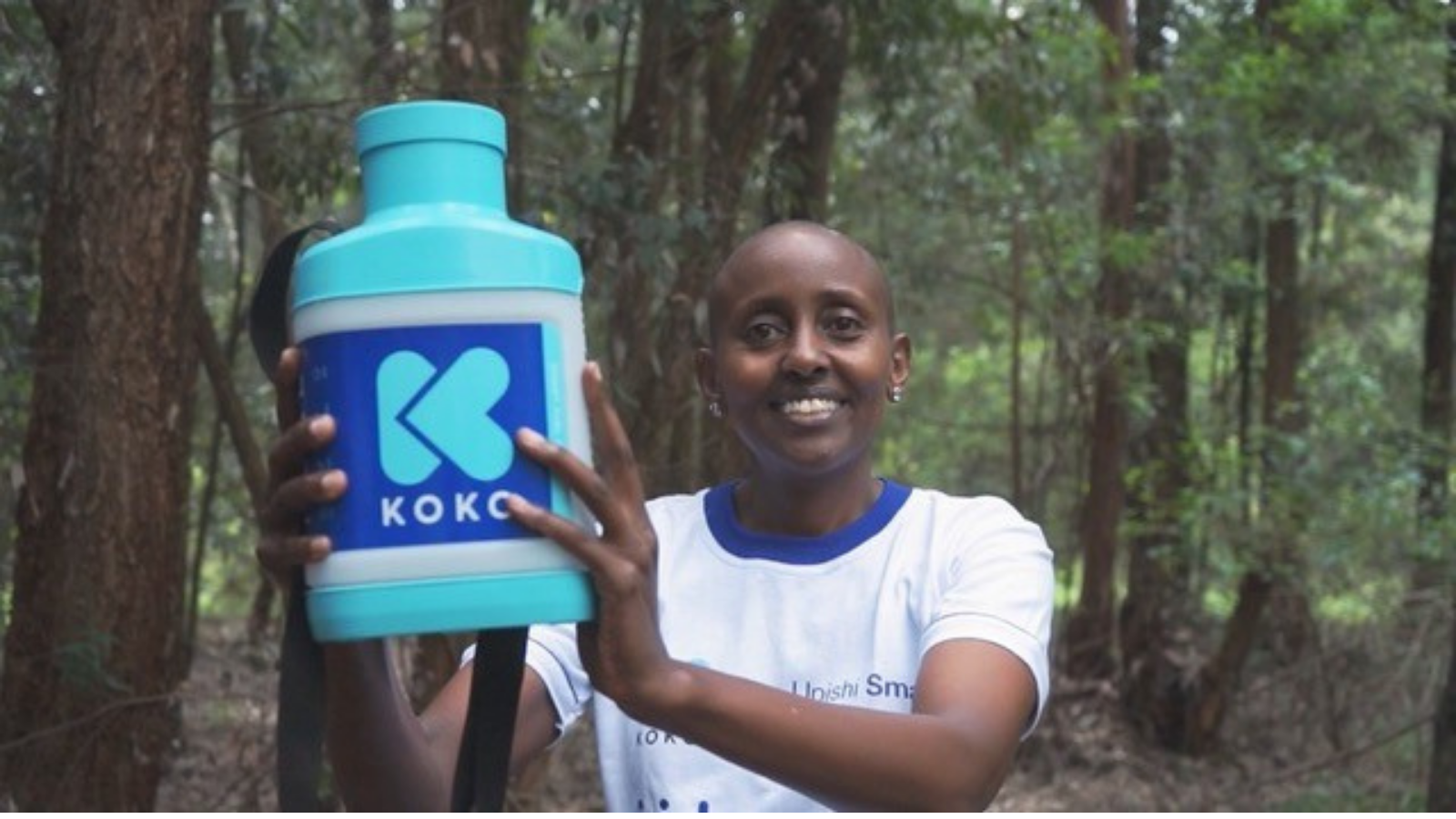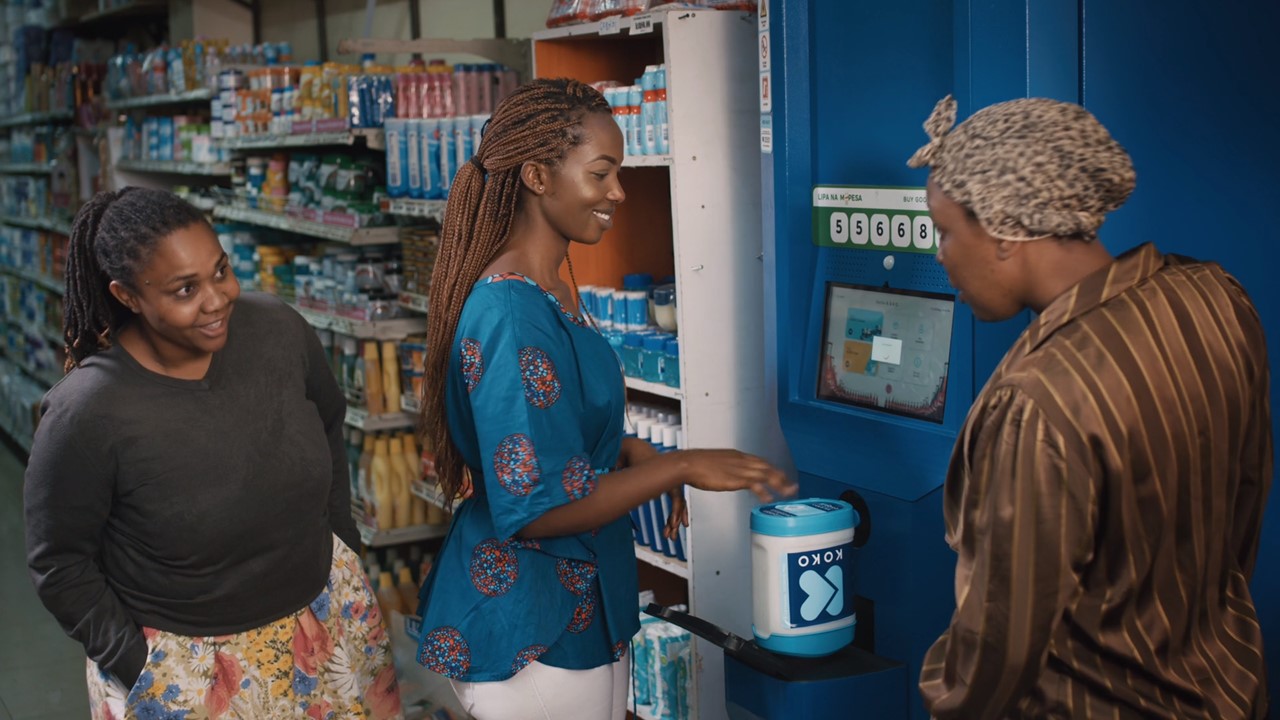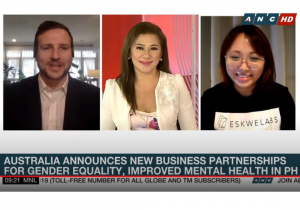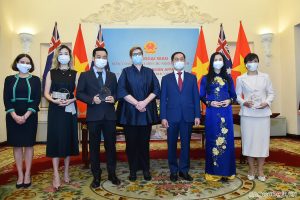Taking a clean cooking solution to scale: Five minutes with Sophie Odupoy from KOKO Networks

Sophie Odupoy, Head of Public Affairs at KOKO Networks
The Business Partnerships Platform creates partnerships between the Australian Government and inclusive businesses for social and environmental impact. A partnership with KOKO Networks in Kenya is scaling a renewable bio-ethanol fuel solution for household cooking. The benefits of clean cook stoves are well-known but how do you meet customers where they are and take a good idea to scale? We did a virtual sit-down with KOKO’s Head of Public Affairs, Sophie Odupoy to find out more.
- What is your role and tell us a bit about KOKO networks’ core business model?
I lead KOKO Networks Government Relations function within Kenya and work closely with our expansion team to support growth into new countries. There’s a lot going on, and even more to do to help governments beyond Kenya to understand the positive impacts associated with the industry KOKO is building and to adopt best practice policies that encourage the industry’s growth.
KOKO’s core business – called KOKO Fuel – is tackling the scourge of dirty cooking, which dominates in markets across sub-Saharan Africa. Most households cook with firewood and charcoal. The impacts are truly devastating. Indoor-air-pollution from dirty cooking fuel kills two million people annually, half are children under five. This is more than the combined death toll of malaria, TB, and HIV/AIDS.
We have launched an ambitious new cooking solution aimed at out-competing dirty cooking fuels in the two areas that matter most to consumers: affordability and convenience. Through a network of around 700 Clean Fuel ATMs inside neighbourhood shops across Greater Nairobi, and a range of other technologies, we enable clean renewable bio-ethanol cooking fuel to undercut charcoal by more than half. The customer experience is modern, clean, ultra-safe and delivers material savings to household budgets.
Our cooking solution consists of a low-cost two-burner cookstove that runs on liquid bioethanol produced by the local sugar industry. This clean fuel is retailed through our Clean Fuel ATMs. These smart, cashless, web-enabled smart machines safely dispense the fuel into unique canisters that KOKO supplies with each stove.

A customer in Nairobi tops-up on clean fuel at one of the city’s 700 KOKO Clean Fuel ATMS.
- What excites you most about the business?
Our success in Kenya has resulted in governments across Africa reaching out to find out how they can encourage investment in the bioethanol cooking fuel industry in their country.
We are in discussion with a wide range of commercial groups who seek to license the technology platform and build networks in countries across Africa, Asia and Latin America. We would like to catalyse a rollout of the industry, like the mobile network’s expansion across emerging markets in the last two decades.
KOKO enables investment into sustainable local bio-ethanol processing, creating new jobs and improving farmer incomes. We have created more than 800 clean energy jobs in Kenya and at our world-class factory in India. Our team is very youthful (95% are under-35); by training and promoting young talent, we are empowering a new generation of leaders in Kenya and India to support the transition to clean energy. I believe this is an amazingly powerful legacy for all of us in Team KOKO.
- What is KOKO Climate and how do you generate credits?
KOKO Climate produces and sells compliance-grade carbon credits to global utility and industrial groups. KOKO Fuel replaces dirty cooking fuel and reduces emissions. These emissions’ reductions are quantified and verified through a UNFCCC Clean Development Mechanism programme and then traded into global compliance and voluntary markets. The associated revenues are used to provide major customer discounts on the upfront cost of the KOKO Cooker Kit, enabling adoption by even the poorest households, and creating an important advantage over charcoal and fossil fuel alternatives.
- How significant are the emissions reductions?
In most African states, the charcoal industry delivers far greater emissions than the power, manufacturing and transportation industries combined. Switching households from charcoal to ethanol delivers major emissions reductions (up to 5-10 tons of CO2e emissions per household per year, according to the UNFCCC).
KOKO’s solution can make a significant contribution towards countries’ quest to mitigate climate change. A recent independent report (Dalberg, 2018) noted that a robust ethanol cooking industry in Nairobi alone could deliver >10% of Kenya’s “Paris 2030” emissions reduction targets, without requiring any government funding. Governments across the continent are now taking notice of the opportunity to grow bioethanol cooking.
Charcoal markets in Africa drive 2 million hectares of deforestation and 1bn tons of GHG emissions annually. The destruction is accelerating as countries increasingly urbanise and forests recede. The reduction in forest cover impacts cloud formation and localised rainfall patterns (most smallholder agriculture in East Africa, for example, is rain-fed). With drought and crop failure, charcoal threatens food security.
The devastation only increases with urbanisation, as people shift from using sustainably collected firewood rurally to deforestation-based charcoal in urban areas. By reimagining the supply chain, we offer consumers a compelling reason to end dirty fuel use, while supporting governments’ policy goals on forest protection, climate change, and food security.
As of mid-October 2021, KOKO have reached the sales milestone of 240,000 Nairobi households cooking with KOKO every day.
- What impact has COVID-19 had on the clean cooking market in Kenya?
Sales of KOKO stoves and fuel have been strong in the last 18 months, despite pandemic uncertainty. As of mid-October 2021, we have reached the sales milestone of 240,000 Nairobi households cooking with KOKO every day. Amid various levels of restrictions, home cooking has increased, driving greater fuel use, and customers have appreciated KOKO Fuel’s unchanged low-pricing and constant availability.
Equally, COVID-19 has created wider consumer awareness of the importance of clean cooking, specifically the links between use of dirty fuels and indoor air pollution that risks causing the underlying respiratory conditions that make people vulnerable to COVID-19.
As COVID-19 has turned the world upside down, we have become acutely aware of the economic damage to Kenya. A large proportion of our current and target consumer base are struggling financially more than ever. Our partnership with the Australian Government through the Business Partnerships Platform is helping us to continue to grow our customer base and improve our product offering given the new market conditions and economic hardships. We are excited by the prospect of further scaling our business and positively impacting more people in Kenya, and beyond.
- Any expansion plans you can share with us?
At a time of such challenges for consumers, we’re striving to extend the reach of our network to bring KOKO Fuel even closer to customers, and thereby accelerate the adoption of clean fuel vs baseline dirty cooking. We’re working on several initiatives aimed at making the KOKO Fuel user experience better than ever.


